What is an Inpatient Drug Rehab?
Inpatient drug rehab is an intensive treatment program where individuals reside at a specialized facility to address their substance abuse issues. The treatment involves a combination of therapies, counseling, and support services provided in a structured and supervised environment.
Inpatient Drug Rehab Starts With Detox Treatment
Inpatient drug rehab often begins with medical detox treatment. Detox is safely managing withdrawal symptoms when an individual stops abusing drugs. It helps rid the body of the substances and allows the individual to become physically stable before moving forward with further treatment.
Detoxification can be critical in recovery, as withdrawal symptoms can be uncomfortable and potentially dangerous. In an inpatient drug rehab program, medical professionals closely monitor individuals during detoxification to ensure safety and manage withdrawal symptoms.
After detox treatment, individuals can move forward with additional therapies and treatment modalities as part of their ongoing rehabilitation. These may include counseling, behavioral therapies, group therapy, support groups, and other interventions tailored to the individual’s needs.
Selecting an Inpatient Drug Rehab Center
When seeking the best inpatient drug rehab center, consider several factors. Check licenses, reviews, ratings, & verify accreditations. Consider the level of care provided. Review the qualifications of the medical staff. Assess therapies and programs available.
The We Level Up inpatient rehab for drugs centers is Psychology Today verified. Our drug rehab inpatient centers are licensed, modern, staffed by inpatient drug rehab therapists, and nationally accredited. With locations across the East and West Coast, we offer specialty drug inpatient rehab near me options like opiate dependence treatment.
We Level Up Alcohol and Drug Inpatient Rehab Near Me Locator
Looking for accredited inpatient drug rehab near me? The We Level Up treatment centers can help you find the proper addiction treatment that suits your needs. Our top-rated inpatient drug rehabs and mental health facilities offer quality care and support for your journey toward recovery. Get started today and uncover top-rated inpatient drug rehab services near you. Uncover our 5-star rated inpatient drug rehabs near me options below:
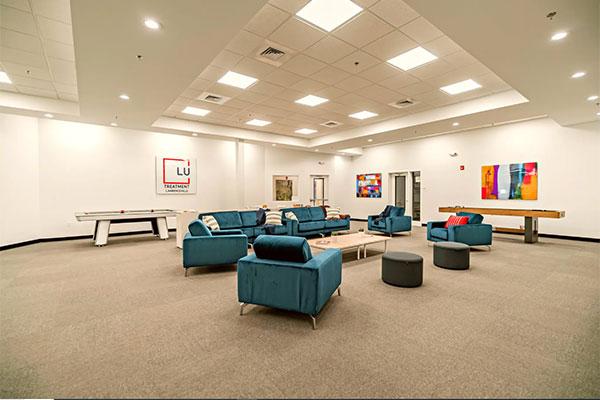
We Level Up New Jersey
Drug & Alcohol Addiction Treatment Center w/Detox
Licensed & Accredited w/ 5-star reviews.- Inpatient addiction rehab center w/medical detox
- Addiction treatment and detox for alcohol, benzo, heroin, opioid, and more.
- Secondary mental health treatment available as part of our dual diagnosis programs.
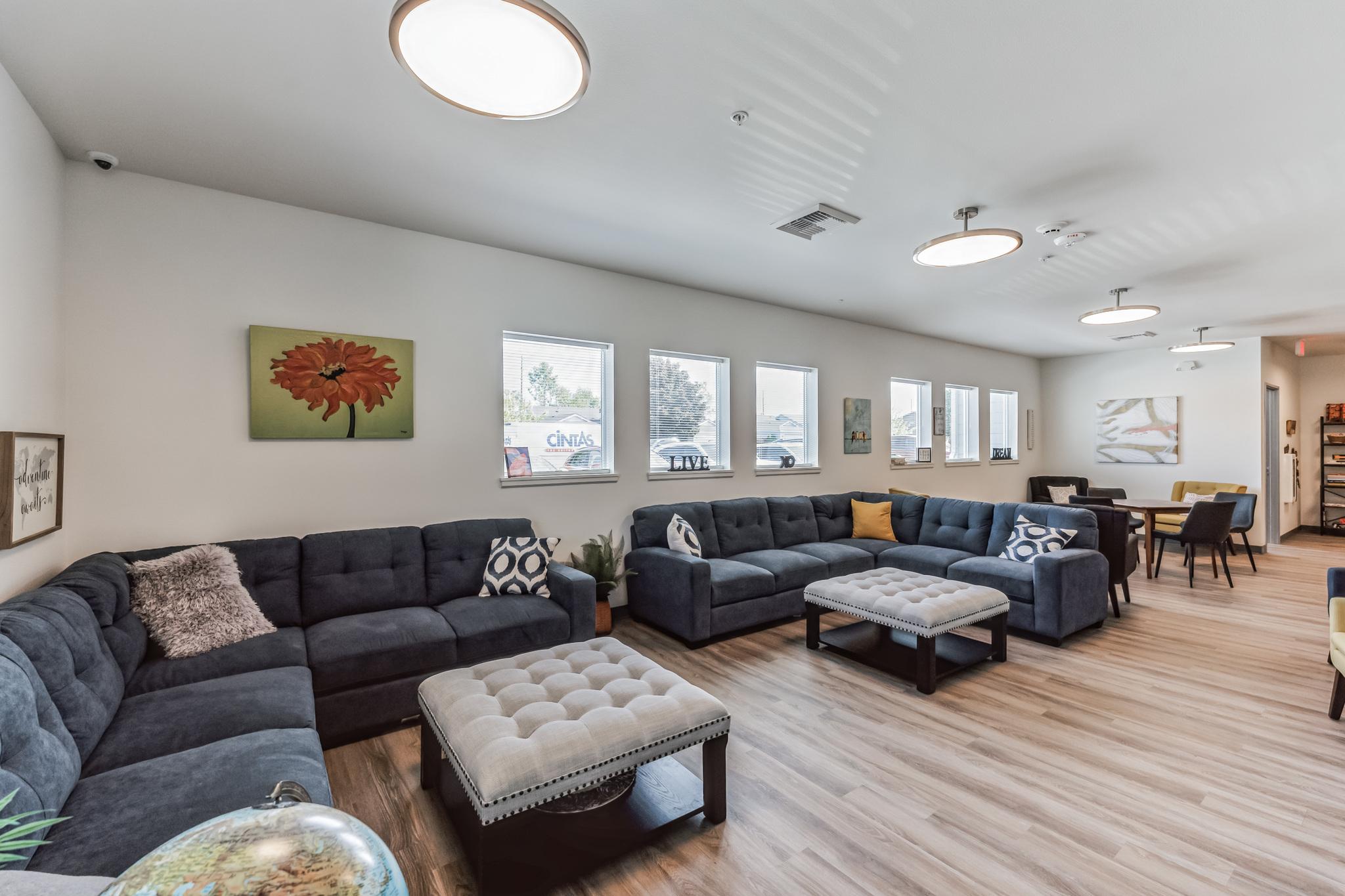
We Level Up Washington
Premier Behavioral Health Treatment Center
Licensed & Accredited w/ 5-star reviews.- Inpatient mental health treatment center
- Therapy for depression, anxiety, trauma, bipolar disorder, PTSD, and more.
- Dual diagnosis rehab programs available
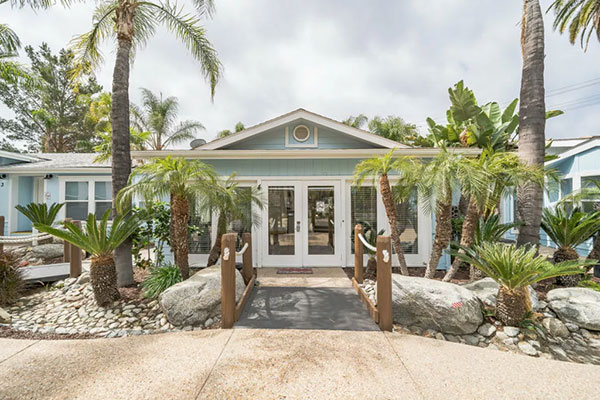
We Level Up California
Drug & Alcohol Addiction Treatment Center w/Detox
Licensed & Accredited w/ 5-star reviews.- Inpatient addiction rehab center w/medical detox
- Addiction treatment and detox for alcohol, benzo, heroin, opioid, and more.
- Secondary mental health treatment available as part of our dual diagnosis programs.
How To Choose Inpatient Drug Rehab Near Me?
To find “drug rehabs near me inpatient programs,” there are a few actions you can take. Discovering the best inpatient drug rehab resources in your area can begin with a few simple steps:
- Ask your doctor or health provider: Consult your doctor or healthcare provider first. They may have recommendations for drug rehab centers or resources in your area.
- Search online: Use search engines to find inpatient drug rehab centers. Type keywords like “drug inpatient rehab near me,” and many relevant options will appear.
- Check the Substance Abuse and Mental Health Services Administration (SAMHSA) website: SAMHSA has a Substance Abuse Treatment Facility Locator, which provides information on inpatient drug rehab centers in the US. This locator can help you to find a suitable rehab center near you.
- Look for local addiction support groups: Local support groups like Alcoholics Anonymous (AA) or Narcotics Anonymous (NA) can also provide information about inpatient drug rehab centers and resources in your area.
- Check with your insurance provider: Your insurance provider may have a list of inpatient drug rehab centers covered by your policy. This information can help you to narrow down your search.
Finding proper inpatient drug rehab resources in your area can involve personal research and consultation with relevant experts.
Advantages of Inpatient Drug and Mental Health Rehab
For those struggling with a severe substance use disorder or addiction, inpatient rehab has the highest long-term success rates. Inpatient treatment programs provide an environment with 24-hour care.
Inpatient drug rehab programs offer several advantages for individuals seeking comprehensive treatment for substance abuse and co-occurring mental health disorders. Here are some of the key benefits:
- Structured and supportive environment: Inpatient rehab provides a highly structured and supportive environment free from triggers and temptations associated with the outside world. This controlled setting promotes focus on recovery and minimizes distractions, increasing the chances of successful treatment outcomes.
- 24/7 medical and mental health support: Drug inpatient rehab programs offer round-the-clock medical and mental health care.
- Comprehensive treatment approach: Inpatient drug rehab programs typically offer a wide range of substance abuse therapy services, including detoxification, individual and group therapy, medication management, behavioral therapies, and holistic interventions. This multidimensional approach addresses the complex needs of individuals with drug use disorder and mental health concerns.
- Peer support and community: Inpatient drug rehab programs provide opportunities for individuals to connect with peers who are going through similar experiences. Group therapy sessions and communal living allow for peer support, empathy, and the sharing of coping strategies, which can foster a sense of belonging and motivation for recovery.
- Intensive and focused treatment: Inpatient programs offer intensive treatment that allows individuals to immerse themselves in recovery fully. With fewer distractions and responsibilities, individuals can dedicate their time and energy to therapy, skill-building, and personal growth.
- Professional supervision and accountability: Inpatient drug rehab programs have trained professionals who monitor and guide individuals throughout their treatment journey. This level of care provides accountability, ensures adherence to treatment plans, and helps individuals navigate challenges that may arise during their recovery.
- Transition and aftercare planning: Inpatient drug rehab programs typically include comprehensive discharge planning and aftercare support.
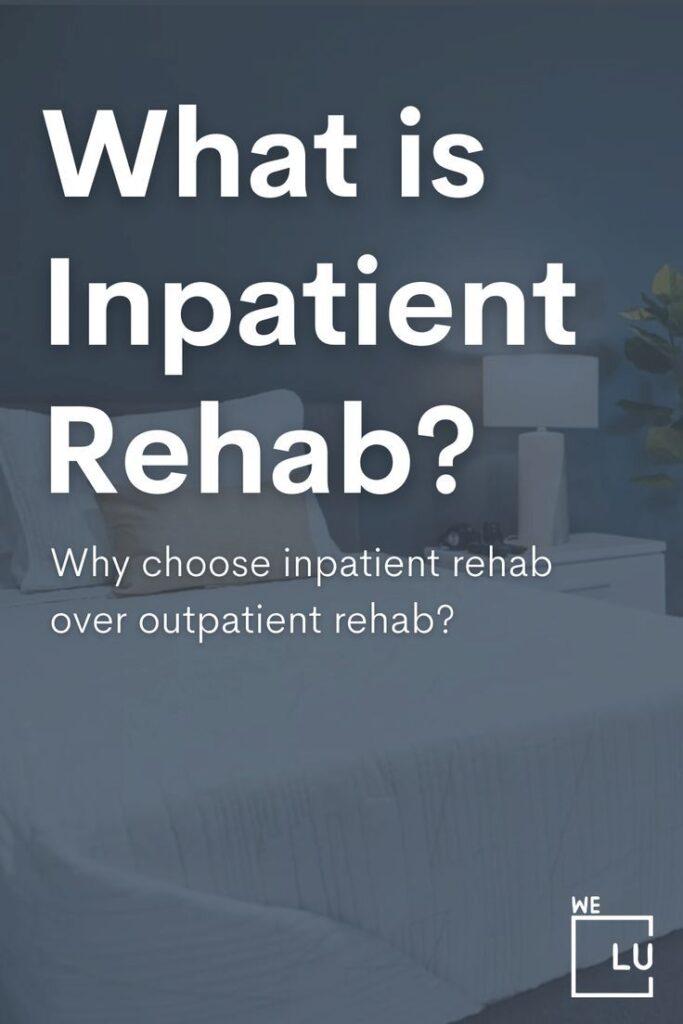
Skip To:
Learn More:
- Treatment & Therapy For Drug Addiction & Abuse
- Discover Top-Rated Drug & Alcohol Medical Detox Near Me, Licensed Accredited Programs. Find Top-rated Detox Near You Treatment Centers.
- Drug & Alcohol Medical Detox Treatment
- Comfortable Drug And Alcohol Detox, First Step To Sobriety
- What Is Drug Counseling? The Benefits of Drug & Alcohol Counseling
- What Is A Prescription Pill Detox Program?
- Opiate Detox Timeline, Withdrawal Symptoms, & Top Treatment Options
- Fentanyl Detox Timeline, Withdrawal Symptoms & Treatment
- Methamphetamine Detox, Symptoms, & Treatment
- Benzo Detox Timeline, Withdrawal Symptoms, Care & Treatment
Dual Diagnosis Florida Alcohol and Drug Inpatient Rehab Near Me Centers
Looking for accredited inpatient drug rehab and detox centers in South Florida? Look no further than We Level Up rehab treatment centers. Our top-notch facilities offer advanced inpatient treatment facilities to get you back on track. Discover some of our top-rated inpatient drug rehab and mental health centers in West Palm Beach to Fort Lauderdale that work. Trust We Level Up for your journey towards recovery. Our Florida inpatient rehab network includes:
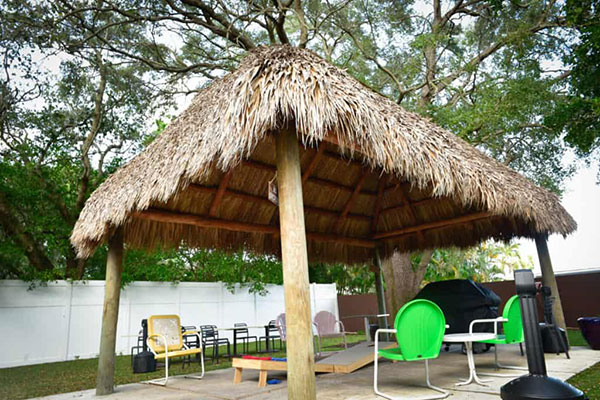
We Level Up Fort Lauderdale
Premier Behavioral Health Treatment Center
Licensed & Accredited w/ 5-star reviews.- Inpatient mental health treatment center
- Therapy for depression, anxiety, trauma, bipolar disorder, PTSD, and more.
- Dual diagnosis rehab programs available
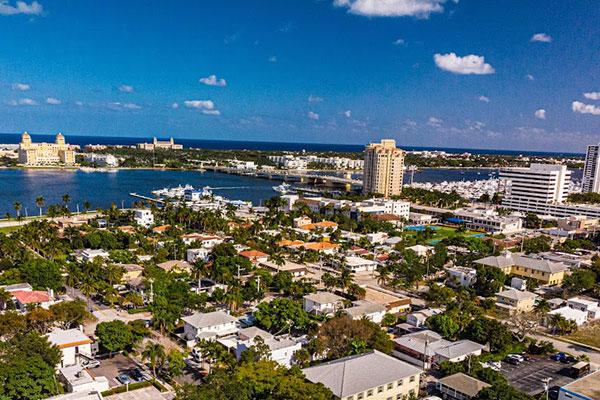
West Palm Beach (coming soon)
Premier Behavioral Health Treatment Center
Coming soon (licensed & accredited.)- Inpatient mental health treatment center
- Therapy for depression, anxiety, trauma, bipolar disorder, PTSD, and more.
- Dual diagnosis rehab programs available
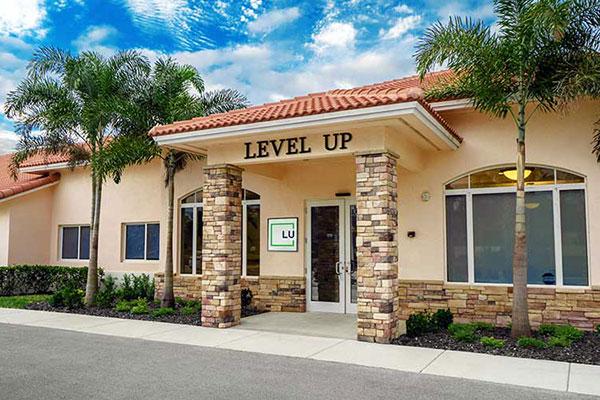
We Level Up Lake Worth
Drug & Alcohol Addiction Treatment Center w/Detox
Licensed & Accredited w/ 5-star reviews.- Inpatient addiction rehab center w/medical detox
- Addiction treatment and detox for alcohol, benzo, heroin, opioid, and more.
- Secondary mental health treatment available as part of our dual diagnosis programs.
Inpatient Drug Rehab Programs
Inpatient drug rehab programs provide counseling sessions to help explore the root causes of substance use and develop coping mechanisms to maintain sobriety. Group therapy sessions provide a supportive community where individuals can share experiences, gain peer support, and learn from each other. Moreover, inpatient rehab programs typically offer evidence-based services, such as fitness activities, nutritional guidance, and stress management techniques, to promote overall wellness.
The advantages of inpatient rehab vary based on individual needs and circumstances, and it’s always advised to consult with a healthcare treatment professional to determine the most appropriate treatment approach. Are you searching for “drug rehab centers near me inpatient program?” We Level Up can help you navigate treatment options and offer personalized treatment.
The ultimate goal of the We Level Up inpatient drug rehab network is to equip individuals with the tools and strategies to overcome addiction and successfully transition into a sober and fulfilling life.
The “best drug rehab near me inpatient” resources may vary based on individual preferences, treatment approaches, and personal needs. It’s essential to consider factors such as drug addiction treatment philosophy, specialized programs, location, amenities, and success rates when determining the best fit for your situation. If you’re looking for an “inpatient drug rehab center near me,” consider We Level Up’s network of inpatient drug rehab programs delivering 24/7 support.
5 Questions to Ask When Searching for Inpatient Addiction Rehab Programs
-
What types of addiction does the inpatient drug rehab program treat?
Inpatient drug rehab programs are designed to treat a wide range of substance addictions, including but not limited to alcohol, opioids (such as heroin or prescription painkillers), cocaine, methamphetamine, marijuana, benzodiazepines, and hallucinogens. These programs are equipped to address addiction’s physical, psychological, and emotional aspects to help individuals achieve and maintain sobriety. The treatment plans are tailored to the substance or substance abuse and may involve detoxification, therapy, counseling, and support services targeted toward the particular addiction being treated.
-
What types of therapy are offered in an inpatient drug rehab?
Inpatient drug rehab programs typically offer a variety of therapy modalities to address the complex needs of individuals in recovery. Some common types of therapy include cognitive-behavioral therapy (CBT), which helps individuals identify and modify negative thought patterns and behaviors linked to substance abuse.
Dialectical behavior therapy (DBT) often enhances emotional regulation and interpersonal skills. Family therapy involves the participation of family members to improve communication, resolve conflicts, and strengthen support networks. Group therapy allows individuals to share experiences, gain peer support, and learn from one another in a structured and supportive environment.
Other modalities like motivational interviewing, trauma-focused therapy, and art or music therapy may also be incorporated into the treatment plan, depending on the individual’s needs and preferences.
-
What kind of aftercare options does inpatient drug rehab offer?
Inpatient drug rehab programs typically provide comprehensive aftercare planning to support individuals as they transition back to their daily lives after completing the program. Aftercare options may include outpatient therapy or counseling, which can involve individual or group sessions to continue working on recovery goals.
Support group meetings, such as 12-step meetings like Alcoholics Anonymous (AA) or Narcotics Anonymous (NA), offer ongoing support, accountability, and a sense of community. In some cases, transitional living arrangements or sober living homes may be recommended, providing a structured and drug-free environment. Moreover, follow-up appointments with medical and mental health professionals can be scheduled to monitor progress, adjust medications if necessary, and provide ongoing support and guidance.
-
What credentials and licensing does the inpatient drug rehab have?
Inpatient drug rehab facilities typically require licensing and accreditation to ensure quality care and adherence to established standards. The specific credentials and licensing requirements can vary based on the state where the facility is located.
In the US, inpatient drug rehab centers may need to be licensed by the state’s health department or a relevant regulatory body. Accreditation from organizations such as the (CARF) Commission on Accreditation of Rehabilitation Facilities or (TJC) The Joint Commission may also be sought to demonstrate adherence to rigorous standards of care. The facility’s staff, including medical professionals, therapists, and counselors, should hold appropriate licenses and certifications in their respective fields, such as licensed addiction counselors or licensed mental health professionals.
-
How much does inpatient drug rehab cost?
Inpatient drug addiction treatment programs can vary in terms of cost and accessibility. Insurance coverage, location, and specialized services availability can influence inpatient treatment access. For some individuals, financial barriers or limited treatment facility options may impact their ability to access inpatient care. One of the best inpatient drug rehab centers does and offers free insurance checking without obligation on your part.
First-class Facilities & Amenities
World-class High-Quality Addiction & Mental Health Rehabilitation Treatment
Rehab Centers TourRenowned Addiction Centers. Serene Private Facilities. Inpatient rehab programs vary.
Addiction Helpline(844) 597-1011Proven recovery success experience, backed by a Team w/ History of:
15+
Years of Unified Experience
100s
5-Star Reviews Across Our Centers
10K
Recovery Success Stories Across Our Network
- Low Patient to Therapist Ratio
- Onsite Medical Detox Center
- Comprehensive Dual-Diagnosis Treatment
- Complimentary Family & Alumni Programs
- Coaching, Recovery & Personal Development Events
How Long is Drug Rehab Inpatient Program?
Inpatient rehab programs can range from 3 to 12 weeks, based on multiple factors, such as insurance coverage, medical necessity, or other personal needs. Some long-term inpatient drug rehab, including the therapeutic community model, can last beyond six months.

What Happens in 30-Day Inpatient Drug Rehab?
In a 30-day inpatient drug rehab program, individuals receive intensive and structured treatment to address their substance abuse issues. Upon admission, they undergo an assessment to evaluate their addiction history, physical and mental health, and treatment needs.
The program typically includes a combination of individual counseling, group therapy, and psychoeducational sessions to address the underlying causes of drug use, develop coping skills, and provide education about recovery. Moreover, individuals may participate in holistic activities such as fitness programs, art therapy, or mindfulness practices to promote overall well-being.
The program also emphasizes aftercare planning, which involves creating a personalized relapse prevention plan and connecting individuals with community resources to support their ongoing recovery after leaving the program.
30 Day Inpatient Drug Rehab Programs
While specific offerings may vary between different 30 day inpatient drug rehab programs, here are standard components and features you may find:
- Assessment and Evaluation: A comprehensive evaluation is conducted upon admission to assess the individual’s addiction history, medical and mental health status, and treatment needs.
- Detoxification: If necessary, medically supervised detoxification is provided to manage withdrawal symptoms as the individual’s body adjusts to being drug-free.
- Individual Counseling: Regular individual therapy sessions are conducted to address underlying issues contributing to addiction, develop coping skills, and create a personalized treatment plan.
- Group Therapy: Group therapy sessions allow individuals to connect with peers, share experiences, gain support, and learn from one another’s insights and strategies.
- Psychoeducation: Education on addiction, relapse prevention, and healthy coping mechanisms is provided to equip individuals with knowledge and tools for their recovery journey.
- Evidenced-Based Holistic Activities: Programs may incorporate holistic activities such as art therapy, meditation, fitness, and recreational activities to promote physical and emotional well-being.
- Aftercare Planning: Towards the end of the program, aftercare planning is initiated to support individuals in their transition back to daily life. This may include referrals to outpatient therapy, support groups, and ongoing treatment options.
- Family Involvement: Some programs involve family therapy sessions to address family dynamics, promote healthy communication, and establish a support system for the individual’s recovery.
- Dual Diagnosis Treatment: In co-occurring mental health disorders, programs may offer specialized treatment to address addiction and mental health concerns.
While these components are standard, individual programs may have additional or specialized services tailored to meet the unique needs of their clients. At We Level Up inpatient drug rehab center, our multi-state distinct locations serve clients nationwide. Searching for “drug rehab inpatient centers near me?” Call a helpline now to get resources and treatment options. Connect with us at We Level Up treatment center for help and options.
Inpatient Drug Rehab Facilities Near Me
We Level Up inpatient drug rehab network serves patients from across the nation. To find inpatient drug rehab Indiana, inpatient drug rehab Ohio, inpatient drug rehab Oklahoma, inpatient drug rehab Phoenix, inpatient drug rehab PA, inpatient drug rehab Colorado, inpatient drug rehab Massachusetts, and inpatient drug rehab NY near you, please call.
Searching for “drug and alcohol inpatient rehab near me?” Check out our inpatient drug rehab Florida, inpatient drug rehab California, inpatient drug rehab New Jersey, and inpatient drug rehab Texas (coming soon) centers.

We Level Up Fort
Lauderdale
Premier Behavioral Health Treatment Center
- Inpatient mental health treatment center
- Therapy for depression, anxiety, trauma, bipolar disorder, PTSD, and more.
- Dual diagnosis rehab programs available

West Palm Beach
(coming soon)
Premier Behavioral Health Treatment Center
- Inpatient mental health treatment center
- Therapy for depression, anxiety, trauma, bipolar disorder, PTSD, and more.
- Dual diagnosis rehab programs available

We Level Up
California
Drug & Alcohol Addiction Treatment Center w/Detox
- Inpatient addiction rehab center w/medical detox
- Addiction treatment and detox for alcohol, benzo, heroin, opioid, and more.
- Secondary mental health treatment available as part of our dual diagnosis programs.
90 day Inpatient Drug Rehab
A 90-day inpatient drug rehab program provides individuals with an extended period of intensive treatment and support for their substance abuse issues. This longer duration allows for a more comprehensive and in-depth approach to addressing addiction and related challenges.
The program typically includes a range of therapeutic modalities, such as individual counseling, group therapy, family therapy, and holistic interventions. With a longer timeframe, individuals have more time to work through underlying issues, develop coping strategies, and establish a strong foundation for long-term sobriety. The extended duration also allows for more excellent stability and practice of newly learned skills before transitioning back to daily life.
Long-Term Inpatient Drug Rehab
Long-term inpatient drug rehab refers to an extended period of residential treatment, typically lasting 6 month inpatient drug rehab or longer.
This intensive program is designed for individuals with severe addiction and complex needs. Long-term inpatient rehab offers ample opportunity for individuals to address deep-rooted issues, undergo comprehensive therapy, and develop sustainable coping mechanisms.
The longer duration allows more time to rebuild life skills, repair relationships, and establish a foundation for long-lasting recovery. It offers a supportive setting where individuals can focus on their healing journey with the guidance and support of a multidisciplinary treatment team.
Inpatient Drug Rehab Fact Sheet
Benefits of the Inpatient Drug Rehab Program
The inpatient drug rehab program offers several benefits for individuals seeking treatment for substance abuse. Here are some of the key advantages:
- Structured and supportive environment: Inpatient drug rehab provides a highly structured and supportive environment for individuals in recovery. Patients reside at the facility for a designated period, usually from a few weeks to several months.
- 24/7 medical and emotional support: Inpatient rehab programs typically offer round-the-clock medical and emotional support. This includes access to medical professionals, therapists, counselors, and support staff trained in addiction treatment.
- Comprehensive treatment approach: Inpatient drug rehab programs offer a comprehensive approach to addiction treatment. They usually combine various therapeutic interventions, such as individual counseling, group therapy, behavioral therapy, family therapy, and holistic therapies like yoga or meditation.
- Detoxification services: Many inpatient rehab programs provide detoxification services to help individuals safely and comfortably withdraw from drugs or alcohol. Medical professionals closely monitor patients during this process to manage withdrawal symptoms and minimize discomfort. Detoxification in an inpatient setting is generally safer than attempting it alone or in an outpatient setting.
- Peer support and community: Inpatient drug rehab programs offer the chance to connect with others who are going through similar experiences.
- Skill development and relapse prevention: Inpatient rehab programs focus on equipping individuals with the necessary skills to maintain sobriety after completing the program.
- Focus on personal growth: Inpatient drug rehab programs often emphasize personal growth and self-discovery. They encourage individuals to explore underlying issues contributing to their addiction and work towards personal healing and growth.
According to the National Institute on Drug Abuse (NIDA), addiction is multifaceted. Effective treatment for substance use disorders should adhere to several principles. Some of these include the following:
- Treatment isn’t a one-size-fits-all endeavor.
- Therapies should be readily available.
- Treatment should address any other issues in addition to substance use.
- More extended treatment periods yield better outcomes. A stay of 90 days or more in treatment may optimize treatment outcomes.
- Behavioral therapies will be the mainstay of treatment in helping people to maintain abstinence.
- Testing for infectious diseases and education on harm reduction should be available in the program. Programs can help link patients to treatment if they test positive for any illnesses and offer to counsel.
Understanding Drug Addiction
Understanding drug addiction involves recognizing it as a complex and chronic brain disorder defined by a compulsive drug-seeking behavior, despite its negative consequences on an individual’s health, relationships, and overall well-being.
- Brain Changes: Addiction affects the brain’s reward system, altering the release of neurotransmitters such as dopamine, which plays a role in motivation and pleasure. Over time, drug use can lead to changes in the brain’s structure and function, making it difficult for individuals to control their drug-seeking behavior.
- Risk Factors: Several aspects can contribute to the development of addiction, including genetic predisposition, family history of addiction, environmental factors (such as exposure to drugs or a history of trauma), and mental health conditions.
- Physical and Psychological Dependence: Addiction involves physical dependence, characterized by withdrawal signs and symptoms when drug use is discontinued, and psychological dependence, where individuals experience intense cravings and a preoccupation with obtaining and using drugs.
- Progression and Tolerance: Addiction is often a progressive condition, with individuals requiring increasing amounts of the drug to achieve the desired effects due to the development of tolerance. This can lead to an addiction cycle and associated risks.
- Co-occurring Disorders: Substance abuse frequently co-occurs with mental health disorders such as depression, anxiety, or trauma-related conditions. Treating drug use disorder and underlying mental health issues is crucial for successful recovery.
- Stigma and Treatment: Addiction is still stigmatized, hindering individuals from seeking help. However, effective treatment options, including behavioral therapies, medication-assisted treatment, counseling, and support groups, can help individuals manage their addiction and achieve long-term recovery.
It is crucial to approach addiction with compassion, recognizing that it is a complex condition that requires a comprehensive and personalized approach to treatment. Education, support, and destigmatization efforts are crucial in promoting understanding and effective interventions for individuals struggling with drug addiction.
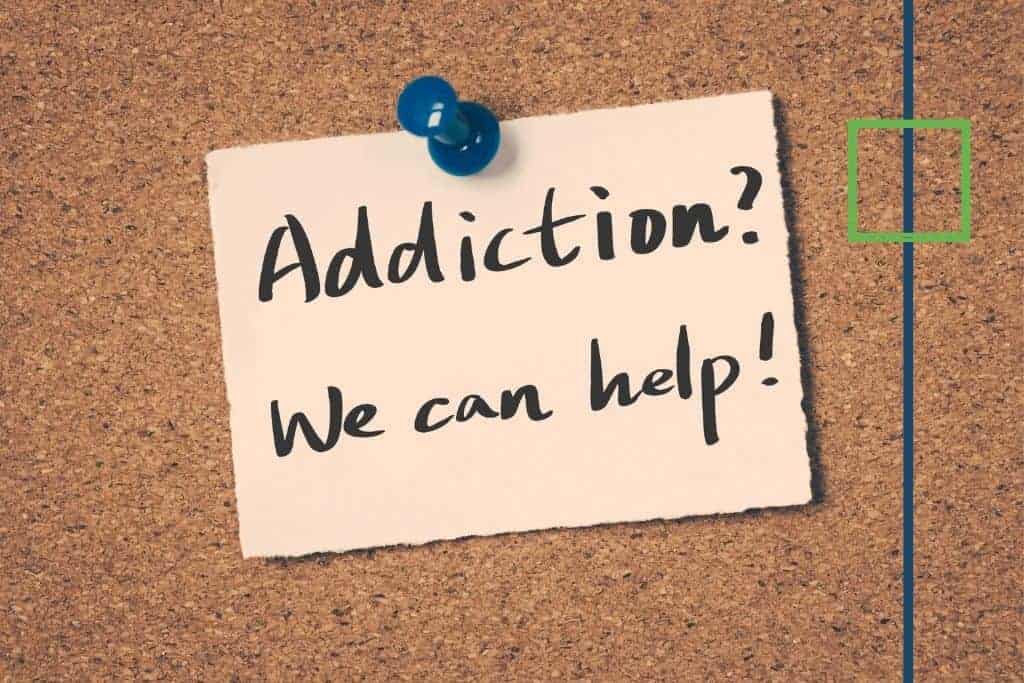

Get Your Life Back
Find Hope & Recovery. Get Safe Comfortable Detox, Addiction Rehab & Dual Diagnosis High-Quality Care.
Hotline(844) 597-1011Inpatient Drug Rehab Statistics
According to research, inpatient drug rehab success rates can range from approximately 40% to 60% or higher regarding sustained abstinence or reduced substance use after treatment. It’s crucial to remember that success is not solely defined by achieving complete abstinence but also includes improved quality of life, better relationships, and overall well-being.
1.6 Million
In 2019, there were approximately 1.6 million admissions to substance use disorder treatment facilities in the US. This includes both inpatient and outpatient treatment programs.
Source: SAMHSA
42%
In 2019, opioids accounted for about 42% of substance use disorder treatment admissions, indicating the significant impact of the opioid epidemic.
Source: SAMHSA
80%
Studies suggest that completion rates for inpatient treatment programs range from 50% to 80%, with higher completion rates associated with longer treatment durations.
Source: NCBI
Inpatient Drug Rehab Aftercare Programs
After completing an inpatient drug rehab program, individuals are often encouraged to participate in aftercare programs to support their recovery.
Aftercare programs are highly individualized, and the specific components and duration of the program may vary. Working closely with healthcare professionals and counselors is recommended to determine the most appropriate aftercare plan based on individual needs and circumstances. Aftercare programs offer continued support and resources to help individuals maintain sobriety and navigate the challenges of returning to their everyday lives.
Here are some common components of inpatient drug rehab aftercare programs:
- Outpatient Treatment: Outpatient drug rehab is a common form of aftercare that allows individuals to continue receiving therapy and counseling while living at home. It typically involves regular sessions with a therapist or counselor specializing in addiction treatment.
- Support Groups: Support group meetings, such as 12-step programs like Alcoholics Anonymous (AA) or Narcotics Anonymous (NA), are integral to many aftercare programs. Regular support group meetings can help individuals stay connected, accountable, and motivated in their recovery journey.
- Continuing Therapy: Continued therapy sessions, either individual or group-based, can be an essential part of aftercare programs. Therapy sessions provide a safe space to discuss ongoing challenges, process emotions, and work on personal growth.
- Relapse Prevention Education: Aftercare programs often include relapse prevention education to equip individuals with the knowledge and skills to avoid relapse. This may involve learning about common relapse triggers, developing effective coping strategies, and creating a relapse prevention plan. Education on recognizing warning signs and seeking help promptly can be crucial in preventing relapse and maintaining long-term recovery.
- Sober Living Homes: Some aftercare programs offer the option of transitioning to a sober living home or a halfway house. These residences provide a drug-free and supportive environment for individuals in early recovery. Sober living homes often have specific rules and expectations, such as regular drug testing, attending support group meetings, and engaging in productive activities. Living in a structured, sober environment can provide additional accountability and support during the early stages of recovery.
- Life Skills Training: Aftercare programs may include training to help individuals reintegrate into society successfully. These programs are aimed to focus on practical skills such as employment readiness, financial management, and healthy relationship building. By acquiring these skills, individuals can improve their overall well-being and increase their chances of maintaining a substance-free lifestyle.
- Ongoing Medical and Psychiatric Support: Some individuals may require ongoing medical or psychiatric support for their aftercare plan. This could involve regular check-ups with a healthcare provider, medication management, or access to specialized services for co-occurring mental health disorders. Continuity of care and ongoing monitoring can help address any medical or mental health needs that may arise during recovery.
Get Help. Get Better. Get Your Life Back.
Searching for Accredited Drug and Alcohol Rehab Centers Near You?
Even if you have failed previously and relapsed, or are in the middle of a difficult crisis, we stand ready to support you. Our trusted behavioral health specialists will not give up on you. When you feel ready or just want someone to speak to about therapy alternatives to change your life call us. Even if we cannot assist you, we will lead you to wherever you can get support. There is no obligation. Call our hotline today.
(844) 597-1011Inpatient Drug Rehabs Near Me
Looking for a “drug rehab inpatient near me?” Look for accredited and licensed rehab centers with experienced and qualified staff specializing in drug addiction treatment. Read reviews, testimonials, and online resources to gauge the quality of their programs and success rates.
To search for inpatient drug rehab Utah, inpatient drug rehab Arizona, inpatient drug rehab Chicago, inpatient drug rehab Maryland, inpatient drug rehab NC, inpatient drug rehab Oregon, inpatient drug rehab Virginia, and inpatient drug rehab Illinois near you. The We Level Up inpatient drug rehab is ready to help you explore treatment options and resources to search nearby rehab centers.
We Level Up Inpatient Drug Rehab Centers
Programs for inpatient drug rehab can address issues other than substance use disorders. For instance, many of the several addiction treatment facilities operated by We Level Up treat patients who also have co-occurring mental health disorders by providing professional and vocational assistance and emphasizing reunifying families.
There are thousands of inpatient drug rehab centers in the United States, some with unique services. We provide long-term and short-term drug addiction rehabilitation. We Level Up offers treatment programs for different lengths depending on each patient’s recovery needs.
The We Level Up inpatient drug rehab team is proud of its staff work history of more than 15 years of experience in alcohol and drug use disorder rehabilitation. We aim to build a strong foundation with our clients to comprehend their needs and deliver effective treatment solutions. Contact our team today for further details and information regarding inpatient drug rehab. We are available 24/7.
World-class, Accredited, 5-Star Reviewed, Effective Addiction & Mental Health Programs. Complete Behavioral Health Inpatient Rehab, Detox plus Co-occuring Disorders Therapy.
CALL(844) 597-1011End the Addiction Pain. End the Emotional Rollercoaster. Get Your Life Back. Start Drug, Alcohol & Dual Diagnosis Mental Health Treatment Now. Get Free No-obligation Guidance by Substance Abuse Specialists Who Understand Addiction & Mental Health Recovery & Know How to Help.
How To Find Top-Rated Accredited Drug & Alcohol Detox Near Me Treatment Centers
To determine the best inpatient drugs rehab center for your needs or when searching for “inpatient drug rehab centers near me,” consider factors such as the facility’s accreditation and licensing, the qualifications and experience of the staff, and the range of treatment approaches offered.
Research the center’s success rates, read reviews and testimonials from previous clients, and inquire about the availability of aftercare programs and ongoing support. Moreover, consult healthcare professionals or addiction specialists who can provide resources and recommendations based on your circumstances.
Searching for an inpatient drug rehab Los Angeles, an inpatient drug rehab NJ, or an inpatient drug rehab Sacramento CA? Connect with We Level Up for more resources and information. Get FREE addiction treatment insurance check – https://welevelup.com/rehab-insurance/
If you or a loved one is struggling with substance abuse, call for a FREE consultation 24/7.
How To Find Top-Rated Accredited Alcohol & Drug Inpatient Rehab Centers Video Transcript.
Welcome to the We Level Up treatment center video series. In today’s video, we will discuss:
What is Medical Detox?
Medical detox, or detoxification, is the first step in addiction treatment. It is the process of ridding the body of toxins caused by drug or alcohol abuse. Detox can be accompanied by uncomfortable and severe withdrawal symptoms that can be deadly if not done under the care of a team of licensed medical professionals. A physician often heads a medical detox center team comprising a nursing staff, a clinical team, substance abuse counselors, and therapists.
Some medical detox centers use advanced practice personnel like nurse practitioners or physician assistants to provide medical treatment during detox.
The We Level Up medical detox near me centers offer:
- Hundreds of verified 5-star reviews.
- University partnerships.
- Psychology Today verification.
- The detox facilities are licensed, modern, staffed by detox specialists, and nationally accredited.
- The detox centers near my facilities range from the East to the West Coast.
- Specialty alcohol detox centers near me & drug detox near me facilities include opiate detox near me clinics.
To ensure you get the best care possible, consider several things when searching for a drug and alcohol medical detox near me. Here are some things to look for when researching drug and alcohol medical detox treatment centers:
- Check reviews and ratings.
- Verify the accreditations and licenses.
- Consider the level of care.
- Look at the qualifications of medical staff.
- Review the therapies and programs offered.
Below are some of the services that you can expect from top medical detox near me centers’ programs:
- 24-hour medical supervision.
- Medication-assisted treatment.
- Cognitive-behavioral therapy.
- Holistic services.
- Aftercare planning.
- Comfortable accommodations.
After using drugs or alcohol for a while, stopping suddenly can cause withdrawal symptoms, sometimes severe and even life-threatening. Medical detox is necessary to help individuals manage these symptoms safely and effectively.
The following signs indicate that medical detox is required:
- Physical dependence.
- Severe withdrawal symptoms.
- Previous unsuccessful attempts.
- An addiction to multiple substances.
- Medical conditions.
- Several drugs require medical detoxification when an individual attempts to stop using them due to physical dependence.
Here are some examples of drugs that require medical detox treatment:
- Opioids.
- Benzodiazepines.
- Alcohol.
- Stimulants.
- Prescription medications.
Drug detox is removing drugs from an individual’s body who is physiologically dependent on drugs. Anyone who engages in heavy alcohol consumption and drug abuse and has a strong physical addiction is a candidate for medical detox. Some substance use disorders are more likely to call for a medically supervised detoxification program than others.
We urge you to look into medically supervised detox if you or a loved one is dealing with addiction to any of the substances below:
- Alcohol Detox.
- Benzodiazepines Detox.
- Heroin & Opiate/Opioid Pain Pills Detox.
- Cocaine Detox.
- Methamphetamine Detox.
It is challenging and sometimes dangerous for you to quit alone. Drug and alcohol withdrawal symptoms can be severe and, in extreme cases, fatal. Going to rehab eases addiction recovery and helps reverse the harm caused by addiction.
Some of the benefits of medical detox in an inpatient treatment setting include the following:
- Medically-assisted detox.
- Therapeutic environment.
- Improved treatment outcome.
- Access to experienced addiction specialists.
- A more comprehensive range of therapies to overcome the root cause of addiction.
Medical detox drugs are primarily used in detox treatment to help manage withdrawal symptoms and reduce cravings during addiction treatment programs.
Experience Transformative Recovery at We Level Up Treatment Centers.
See our authentic success stories. Get inspired. Get the help you deserve.
Start a New Life
Begin with a free call to an addiction & behavioral health treatment advisor. Learn more about our dual-diagnosis programs. The We Level Up Treatment Center Network delivers recovery programs that vary by each treatment facility. Call to learn more.
- Personalized Care
- Caring Accountable Staff
- World-class Amenities
- Licensed & Accredited
- Renowned w/ 100s 5-Star Reviews
We’ll Call You
Search We Level Up Inpatient Drug Rehab Detox, Mental Health Topics & Resources
Sources
[1] Inpatient Drug Rehab – Effective Treatment Options (welevelupnj.com)
[3] Addiction Counseling Near Me, Drugs & Alcohol Treatment (welevelupnj.com)
[4] Inpatient Addiction Treatment (welevelupca.com)
[5] The Benefits of Drug & Alcohol Counseling, Drug Counseling for Addiction (welevelupnj.com)
[6] Gray C, Argaez C. Residential Treatment for Substance Use Disorder: A Review of Clinical Effectiveness [Internet]. Ottawa (ON): Canadian Agency for Drugs and Technologies in Health; 2019 Jan 4. Available from: https://www.ncbi.nlm.nih.gov/books/NBK541232/
[7] Center for Substance Abuse Treatment. A Guide to Substance Abuse Services for Primary Care Clinicians. Rockville (MD): Substance Abuse and Mental Health Services Administration (US); 1997. (Treatment Improvement Protocol (TIP) Series, No. 24.) Chapter 5—Specialized Substance Abuse Treatment Programs. Available from: https://www.ncbi.nlm.nih.gov/books/NBK64815/
[8] Laws and Regulations for Substance Abuse & Mental Health – Substance Abuse and Mental Health Services (SAMHSA)
[9] Substance Use Treatment for Veterans – Veterans Affairs (.gov)
[10] Treatment | National Institute on Drug Abuse (NIDA) Available from: https://nida.nih.gov/research-topics/treatment



